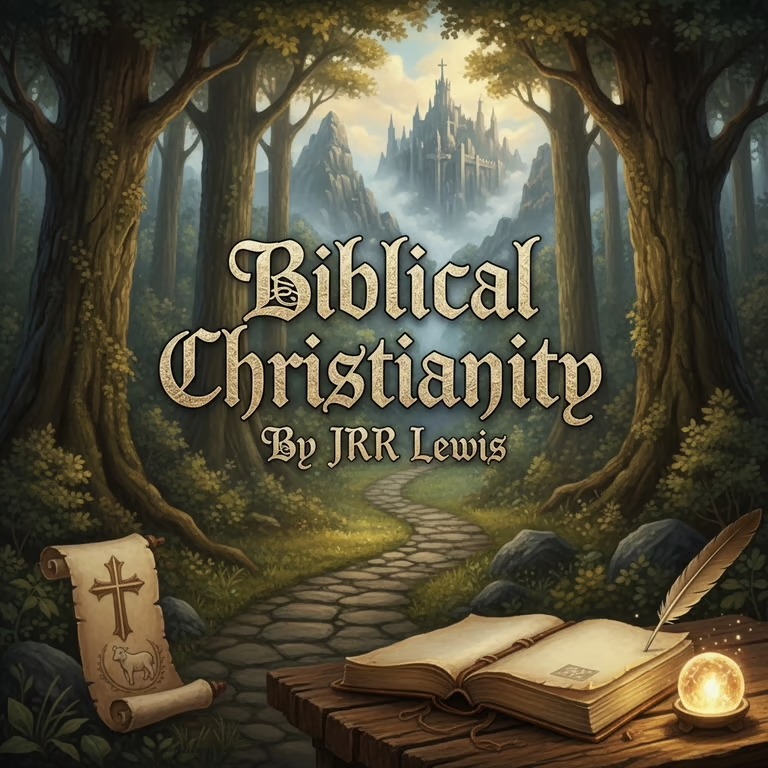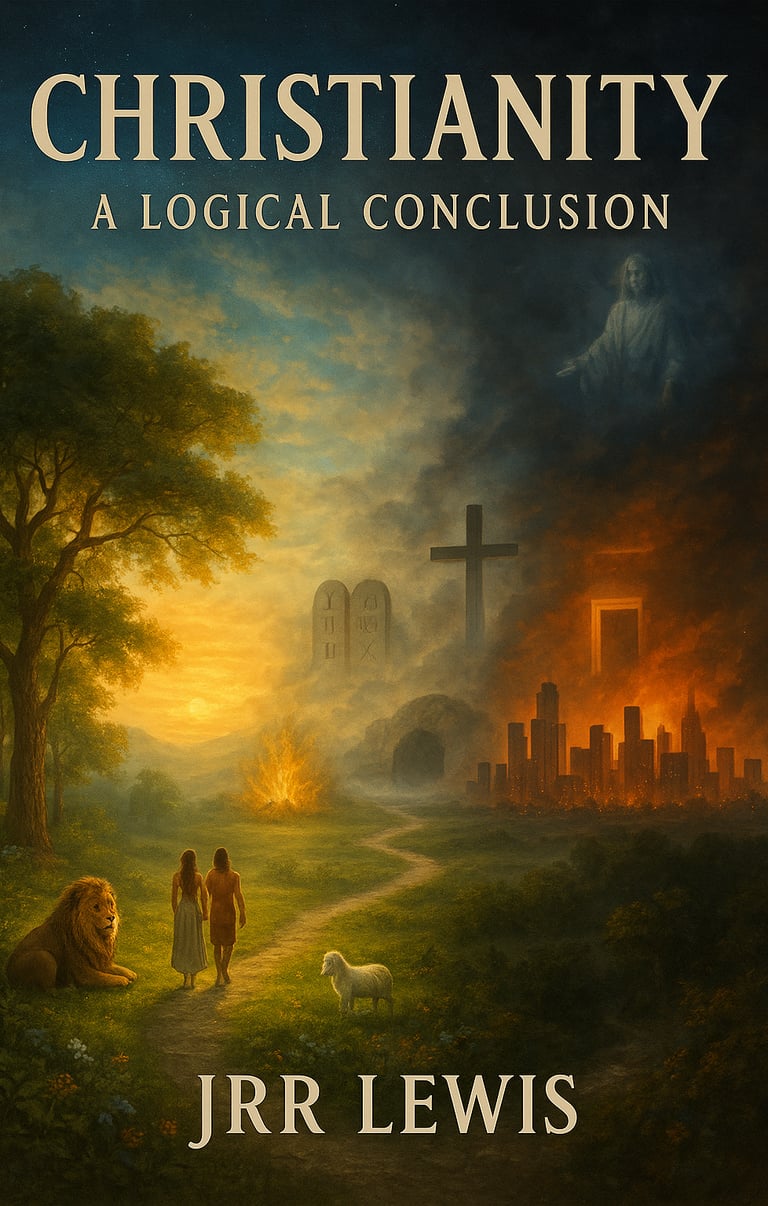

Authenic Discipleship in Christ through Reflective ChristianitySeries Books.
Christianity: A Logical Conclusion
is a sweeping walk through the story of Scripture, showing that the Bible is not a collection of random moral tales, but a cohesive and purposeful account of God’s creation, mankind’s fall, and the long path toward restoration through Jesus Christ.
Beginning with the evidence for a Creator in the precision of the physical universe, this book explores how the world’s very design points toward intelligent purpose. It addresses questions of meaning, morality, and human longing—suggesting that the search for truth and justice finds its answer in the God who made us. The biblical narrative unfolds chapter by chapter, from Eden to eternity, connecting key figures like Noah, Abraham, Moses, and the prophets to God’s covenant plan. The New Testament is then presented not as a sudden shift, but as the fulfillment of everything that came before. Jesus is shown as the culmination—the promised Redeemer who restores what sin destroyed.
Throughout the book, you’ll find brief but thoughtful addendum chapters that address hard or speculative topics—such as the nature of demonic forces, the judgment of ancient nations, and the repeating human attempts to become godlike through forbidden knowledge. These sections are clearly marked and noted as such, offering possible insights without dogmatism.
At its heart, Christianity: A Logical Conclusion is written for the reader who has been around the church—or perhaps left it—but never quite grasped the full story. It is for the seeker, the skeptic, and the deconstructing believer who wonders if the Bible makes sense in today’s world. This book argues that it does—not only because of the historical and prophetic coherence of Scripture, but because the person of Jesus still offers the only lasting hope for humanity.
The final chapters explore what it means to emulate Christ, the importance of the Church, and the necessity of faith in Christ alone. Readers are reminded that the biblical story begins in a garden and ends in one—a restored Kingdom where God dwells again with His people.
This is not a book of empty religion. It is a call to see the full arc of God’s design—and to consider that Christianity may not just be true, but the most reasonable conclusion of all.

